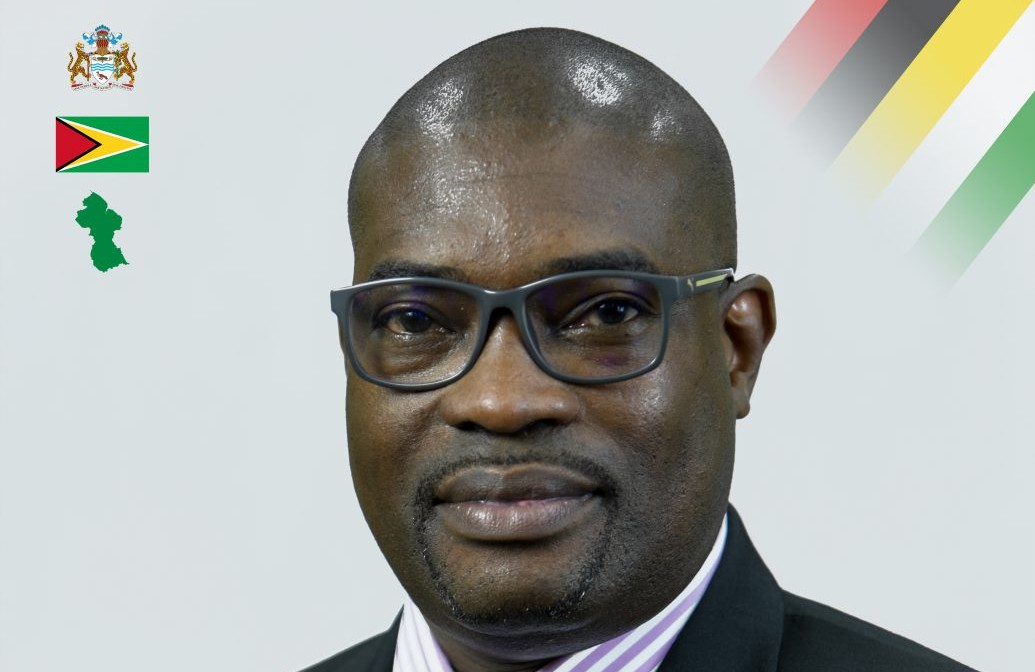Opposition Member David Patterson has clarified that the payment for e-Passports, the e-Passport issuing and control system and border management system back in 2019 was for a six-year period and not a single year as may have been interpreted from the 2019 auditor general’s report.
Patterson, who held the position as Public Infrastructure Minister under the APNU+AFC coalition government provided clarity on the procurement following a blistering line of questioning from Public Accounts Committee (PAC) member, Gail Teixeira.
Teixeira during the 54th Public Accounts Meeting where the Office of the President appeared before the committee, raised questions about the status of the contract, what items were delivered, and expressed concern over the issuance of some 800 diplomatic passports.
In 2019, Office of the President was referred to as the Ministry of the Presidency.
However, Patterson in his explanation said that at no point were diplomatic passports handed out “willy-nilly” by the APNU+AFC government. He related that from what he recalls, when the contract was awarded in 2019, the contractor was tasked with delivering the procured items over a six-year period.
“This contract is a six-year contract. NPTAB [National Procurement and Tender Administration Board] granted the approval because they went to Canadian Bank Note, they went to a company in India, Chinese and then they went to a German company. The great number of passports were to be delivered in six-month batches…The PS [Permanent Secretary] wrote and gave the schedule, that every six months. So, 800 diplomatic passports were over the six-year period. I don’t know how they needed them. But every six months, there was supposed to be a delivery. It was all written out in the contract,” the former APNU+AFC government minister explained.
The contract was flagged by the Auditor General based on the findings that eight payments totalling $651.184 million were processed in 2019. However, only four payments totalling $325.602 million were transferred to the supplier. As at October 2020, the Ministry still had four cheques totalling $325.582 million in hand. The AG’s report stated that payment vouchers for these transactions had no supporting documents, and as such, the AG could not ascertain the basis for the preparation of these payments.
Teixeira, government Chief Whip, told the committee prior to Patterson’s explanation, that she was concerned over the issuance of the diplomatic passports as the circle of Guyanese diplomats is a fraction of the amount that was being procured.
However, in her line of questioning, she asked what records were there to show the deliverables and what has been delivered to date. She also questioned what the status of the project is.
But when Office of the President (OP) Permanent Secretary Abena Moore could not provide immediate answers to the questions, Teixeira registered her disappointment.
“I must protest, it is not a memory game, not an issue of individual. This is about documents. A supplier is given a contract he has to provide 10 things after payments are made. He has to provide documents to show it is delivered. We paid money for this, where are the documents to what is paid for?” an irritated Teixeira asked.
She also asked that the Auditor General revisit the paragraph and provide clarity on what has been supplied.
Moore explained, “I sought to get some information from the person who was in charge of this project, but they’re no longer employed at the ministry. And I would have asked if they could come to give more clarity but I did not get a response.”
She added the officer, who was working on the project under the Ministry of Citizenship that was under the Ministry of Presidency at the time and more au fait with what was delivered and what was not, did not respond to a request to appear before the committee.
However, she told the body she will now have to check with her colleague in the Ministry of Home Affairs, since citizenship has been transferred under that ministry to enquire if the contract is still functional.
The Auditor General in his report noted the deliverables of the contract included, New Border Management System with ten APC e-Kiosks with five years’ maintenance, and support; Border Management System Stand-by Site, New e-PICS with five years’ maintenance and support; e-PICS Warm Stand-by Site; online Passport Application and Payment System; 398,000 Regular e-Passports (32 pages); 100,000 Regular e-Passports (48 pages); 800 Service e-Passports; 800 Diplomatic e-Passports; and 900 specimen e-Passports for on-site training, testing.
While recommending that the head of Budget Agency ensures full compliance with Section 31 of the FMA Act. It was also noted that the processing of these four transactions were in breach of Section 31 (2) of the FMA Act, which stipulates that “Each requisition for a payment of public moneys out of the Consolidated Fund shall be in such form, accompanied by such documents and certified in such manner as the Minister may by regulation prescribe”.
The auditor general stressed too that Section 31 (3) was also breached. This Section stipulates that “No requisition for the payment of public moneys shall be made in respect of any part of the Government unless the Head of the budget agency concerned or an official authorised in writing by that Head for the purpose certifies –a) in the case of a payment for the performance of work, the supply of goods or the provision of services i. that the work has been performed, the goods supplied or the services provided, as the case may be, and that the price charged therefor is in accordance with the contract or other arrangement governing the work, good or services… ii. where, pursuant to a contract…a payment is to be made prior to the completion of the work, supply of the goods or provision of the services, as the case may be, that the payment is in accordance with the contract…”









